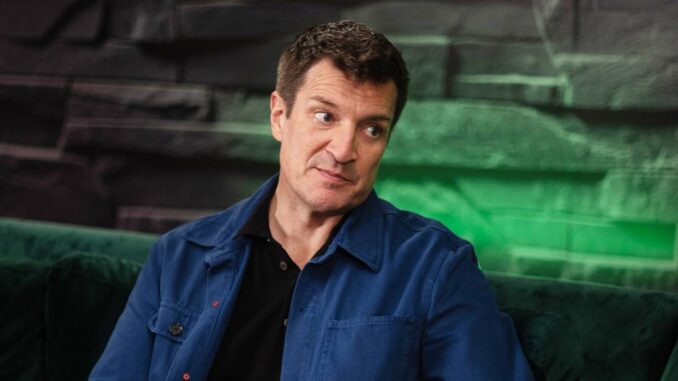
The Unplucked String: Nathan Fillion and the Echo of Forgotten Stories
Television, in its essence, is a living tapestry woven from countless threads of plot, character, and fleeting moments. Over seasons, these threads intertwine, some forming robust patterns, others fading into the background, and a few, inevitably, are dropped, left as an unplucked string vibrating silently in the show's grand symphony. When a star like Nathan Fillion, the charismatic anchor of ABC’s The Rookie, expresses a desire to revive one such forgotten storyline, it's more than a casual actor’s musing; it’s a profound testament to the power of narrative, the unique bond between performer and character, and the enduring human hunger for completion.
Fillion, as Sergeant John Nolan, isn't merely an actor reciting lines; he is, in many ways, the steward of the show’s soul. Having lived in Nolan’s skin for years, he possesses an intimate geography of the character’s past, present, and potential future. His wish to resurrect a forgotten thread isn’t born of a need for more screen time or a contractual obligation. Rather, it springs from a deeper, more artistic impulse: the recognition of an unfulfilled promise, a narrative loose end that, like a persistent echo, continues to resonate within the show's larger arc. It's the equivalent of a seasoned architect revisiting the original blueprints of a magnificent building, spotting a magnificent, unimplemented design element, and envisioning its triumphant completion.
What is a "forgotten storyline" in the sprawling landscape of a long-running series? It could be a minor character introduced with intrigue only to vanish, a subtle hint about a protagonist’s past never explored, a budding relationship left unresolved, or a mystery briefly touched upon and then buried under the weight of new cases and crises. These forgotten threads are the ghosts of episodes past, whispers in the margins of the main narrative, often casualties of production demands, shifting creative visions, or the sheer momentum of weekly storytelling. Yet, for devoted viewers, they persist as nagging questions, like a half-finished puzzle or a book with a missing final chapter. We invest in these fictional worlds, and every discarded piece, no matter how small, represents an unfulfilled curiosity, a moment where the tapestry felt incomplete.
The act of revival, then, is more than just a plot point; it is a narrative resurrection. It’s a deliberate decision to bridge across forgotten waters, to connect a present narrative to a past one, enriching both. Imagine a detective, years into his career, suddenly confronted by a consequence of a seemingly insignificant choice he made in his rookie year – a case he closed too quickly, a person he underestimated. This isn't merely filler; it adds layers of depth, demonstrates the ripple effect of actions, and pays off the audience’s long-term investment. It transforms what might have been perceived as a flaw in continuity into a deliberate, satisfying arc. It’s the ultimate form of fan service, not in a pandering way, but in acknowledging the collective memory and shared investment of the audience.
Moreover, Fillion's impulse speaks to the evolving nature of television itself. In an era of binge-watching and deep dives into show lore, audiences are more attuned than ever to narrative consistency and payoff. The idea that a lead actor, deeply embedded in the creative process, champions the meticulous cultivation of the show’s history is a powerful statement. It suggests a collaborative environment where every character's journey, every sub-plot, holds potential value, and where the series isn't just about the next big case, but about the long, winding river of its inhabitants’ lives. It’s a subtle but significant pushback against the disposable nature some episodic television can fall into, advocating instead for a more holistic, interconnected narrative.
Ultimately, Nathan Fillion’s desire to unearth a forgotten storyline on The Rookie is a microcosm of why stories matter so deeply to us. It underscores the profound connection between an actor and the character they embody, the intrinsic power of narrative completion, and the enduring magic of television to build worlds that resonate, evolve, and occasionally, with a little prompting from its dedicated custodians, return to an unplucked string to finally make it sing. It’s a hopeful whisper that, even in the sprawling, sometimes chaotic production of a long-running series, no good story – no matter how briefly forgotten – is truly lost forever.